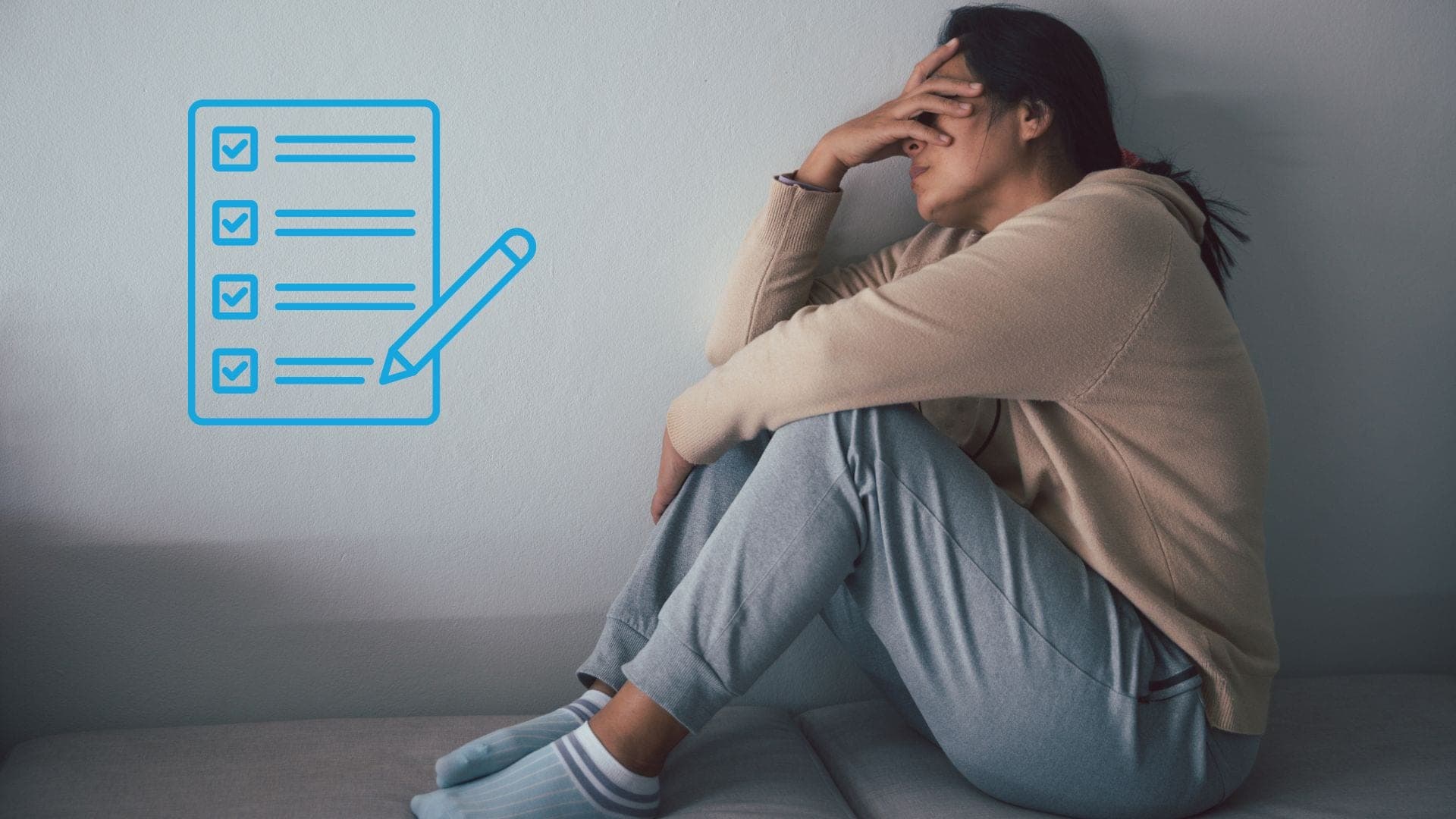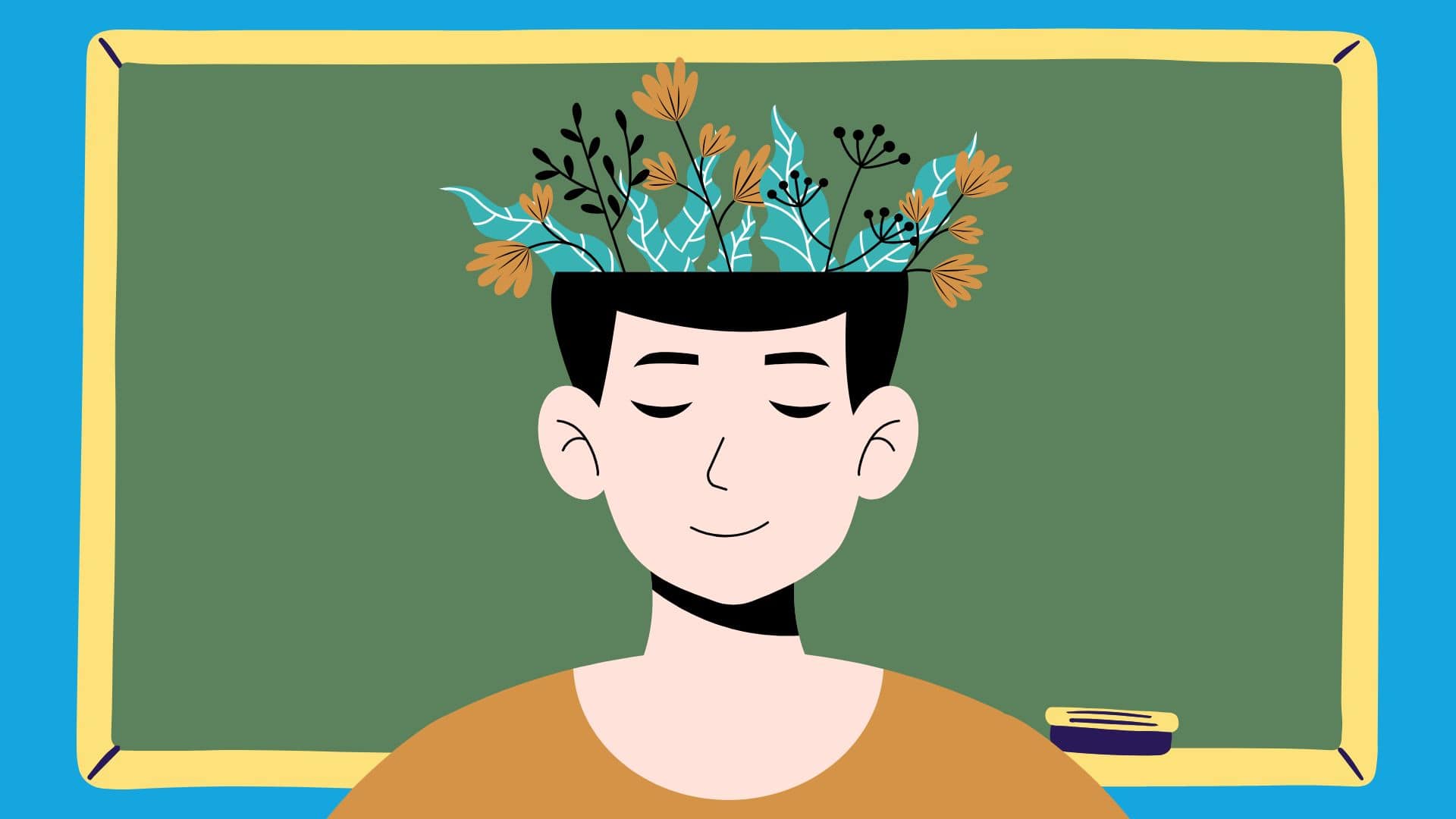
From instilling self-confidence to reducing the impact of negative thoughts, here are 22 answers to the question, “What are some helpful tips to help overcome test anxiety?”
Test anxiety comes from our insecurities in a lot of ways. We are nervous that we don’t know the material well enough, that we’ll run out of time, or that the test will be harder than we expected.
By overcoming our own insecurities, we can directly overcome test anxiety on exam day. And one of the best means of doing this is mastering the subject by teaching it to another. If you can teach what’s going to be on your exam to someone else, it will enhance your understanding of the material and build your confidence.
The night before the exam, get together with someone who knows nothing about the subject and teach them. Give them a crash course. This could be your boyfriend, cousin, mom, or whoever.
Spend an hour or two walking them through the material and showing them how to solve problems and explaining the concepts. If you can teach the material to someone with no knowledge, it will jumpstart your mental outlook and confidence for test day.

John Ross, CEO, Test Prep Insight
Sometimes, you must take your heart and mind into confidence when embarking on a mission you know you are nervous about. To do this, you need to tell yourself consistently and even convince yourself that you’ve got what it takes.
Give yourself a pep talk about how you already know that the results will be in your favor and how all the hard work is bound to produce the best results. You can even imagine the outcome and plan how to celebrate your success.
Sometimes confidence is the only thing that is missing when up against anxiety, especially when you’ve already put in the hard work to prepare for your test.

Riley Beam, Managing Attorney, Douglas R. Beam, P.A.
When you cram at the last minute for a test, you may end up feeling overwhelmed by the amount of material you need to cover in a short time. This can make you feel unprepared for the test, leading to unnecessary stress and anxiety.
Also, cramming can make you tired, which impairs your ability to think clearly during the test and often results in a lower score than you might expect. Preparing for a test over a more extended period and letting yourself rest before the test is much more beneficial.

Natalia Brzezinska, Marketing and Outreach Manager, PhotoAiD
Some people psych themselves out before they even sit down to take a test. One person I know took the LSAT four times before getting a high enough mark to apply to law schools—and it was all because of the mounting anxiety she kept feeling each time she took it. During your test preparation, you should have something else on the side that gives your mind a rest and gives your psyche a much-needed break.
You should have a job or activity that you can easily jump in and out of. Some people craft things. Others play the cello. Some find something that involves some physical exertion–anything from pumping iron to shoveling hay at a horse farm.
Whatever the case may be, don’t spend 8-10 hours per day preparing for a single test. That doesn’t prepare you; it only makes you feel more stressed. Balance out your studying with one or more other activities, something that occupies your mind completely differently.

Rachel Blank, Founder and CEO, Allara
Our company specializes in preparing high school students for standardized tests, and our number one tip for overcoming testing anxiety is to do as many simulated runs of the testing environment as possible in practice!
This means setting aside a couple of hours each week to take the test in one go, under the timed conditions, and, if you can, ask a parent or a friend to act as a proctor.
This helps you get into the mindset of taking the test, and when the actual test day comes, you’ll have done it in practice many times before.

Adam Shlomi, Founder, SoFlo Tutors
Try to reduce your caffeine intake. While caffeine can help you focus and stay up late when studying, it can also make you feel on edge and anxious.
You don’t want to feel this way, especially as you take your test. Staying calm is essential for test-taking.

Drew Sherman, Director of Marketing and Communications, Carvaygo
Procrastination is a coping mechanism that helps us manage the anxiety that comes from doing unpleasant or stressful tasks. However, postponing your preparation until the day before the test will increase your anxiety on exam day and affect your test results.
With little time before the test, it’s hard to find answers to questions that may arise when revising your study materials. Or, you might end up pulling an all-nighter, which will make your brain work at suboptimal levels during the test.
Instead, start studying well in advance, and break down the test into smaller topics. This can help make the test seem more manageable and should help you identify problematic areas that might need extra attention and preparation.

Andrei Kurtuy, Co-Founder and CCO, Novoresume
One of the best tips to overcome test anxiety is to do diaphragmatic breathing. This is one of the simplest yet most effective ways to relieve stress and overcome anxiety before a test or examination.
If all else fails, try taking a few slow, deep breaths as your test is about to start. Breathing more slowly can help stop your fight-or-flight reaction. It can help lower your blood pressure and heart rate and alert your body that it is time to relax. A 2019 review found that diaphragmatic breathing can be especially beneficial for reducing anxiety.
Try it out: Slowly inhale through your nose. Instead of inhaling only through your chest, let your abdomen and ribs expand together. As you inhale deeply, exhale the air through your mouth.
Continue this cycle until you feel more at ease. It may seem incredibly simple to breathe because you do it automatically after you take a breath. However, it can be an effective strategy.

Joe Li, Managing Director, CheckYa
Sometimes, if you feel confident, you will be confident. Choose an outfit for a test day that is comfortable or something that boosts your self-esteem.
Comfortable clothing can help put you in a relaxed state, while fashionable clothing may draw attention to you and away from the impending test.

Simon Bacher, CEO and Co-Founder, Ling App
This is one that I’ve got a fair amount of experience with myself because of studying for various language exams—if you have a test that’s at the intermediate level, study materials at an advanced level for at least part of your prep time.
I’ve always found that exposure to more complicated materials really helps put the content you’re currently studying into perspective and makes it seem that much simpler after you’ve spent some time struggling with tough questions.
Nothing helps to quell anxiety like knowing that what you’re working on is simple, comparatively speaking.

Kate Kandefer, CEO, SEOwind
Be sure to give yourself enough time for review and practice, so you don’t feel rushed or overwhelmed by the amount of material that needs to be covered.
Also, develop good study habits like taking breaks, eating healthy snacks, and getting plenty of rest. Try to relax and keep a positive attitude. Remind yourself that you have put in the work and preparation, so there is no need to worry about the outcome.

Benjamin O., Founder and CTO, Stress Reliever’s Club
The crippling fear of striving to be a perfectionist or know-it-all increases test anxiety. Understand that you cannot be flawless or the best at everything and that you have imperfections.
The first step to conquering your fear is acknowledging your inadequacy. In order to avoid test anxiety, you must first accept that you cannot be a perfectionist in life. Test anxiety originates in the fear of not being able to perform well on tests and other important things in life.
Reject the ideas that encourage you to go beyond your limits in order to fulfill some unrealistic expectations of yourself and find comfort in knowing that you did your best.

Cynthia Hamilton, Marketing Director, OGLF
Everyone learns differently. To some, visual aids work better than audio, and to others, there’s nothing better than the written word. And since the best way to beat test anxiety is to prepare well, choose a study method that suits you best and proceed with your test preparations accordingly.
Eventually, it will all come down to how much you know, and even when you feel those last-minute jitters, this confidence in your study pattern will see you through. So choose your learning tools carefully and ensure that the time you’re putting in is going in the right direction.

Brendan McGreevy, Head of Strategy, Affinda
Writing my feelings and thoughts helps me understand what’s triggering my anxiety. No matter how many times I go through similar situations, it still feels the same when it’s all foggy and uncertain. I have a hard time figuring out what makes me feel this way.
When I translate my thoughts into words, it feels calming to see my worries written. It makes my emotions tangible. Once I have finished writing everything on paper, I put an end to my overthinking.
As I have some idea of what’s bothering me, I can challenge those thoughts. I can ask myself how far my preparations can take me, even if the test is not in my favor. Sometimes I also write about how I have turned things around on previous tests.
I write the strategies I used to make that happen. It’s these little boosts that help me manage my test anxiety. I have to identify my worries first before I try to find clarity amidst anxiety.

Andreas Grant, Founder, Networks Hardware
While studying can significantly affect your grade, getting enough rest is also crucial. In 2018, an examination of sleep and test anxiety among Turkish high school seniors shows students who reported having trouble sleeping the night before an exam were more likely to exhibit physical symptoms of worry, such as an upset stomach, sweating, and a quick heartbeat, as well as greater levels of general test anxiety.
Naturally, test anxiety might make it challenging to slumber before a test. According to a modest 2020 study involving pharmacy students in the US, people sleep less right before final exams.
In consequence, sleep deprivation may hurt how well you do on your exam. To increase your likelihood of having a restful night’s sleep: At least 30 minutes before going to bed, put your phones, laptops, and electronics away. Go to bed at the same time every night. Make sure your bedroom is cold and quiet. Before going to bed, eat less.

Himanshu Sharma, CEO and Founder, Academy of Digital Marketing
The protein contains an amino acid called tryptophan, which can increase the production of serotonin in the brain. Scientists have shown that serotonin is a neurotransmitter that regulates mood, anxiety, and happiness, and has a calming effect on the brain.
By increasing the production of serotonin, a high-protein meal can help reduce the symptoms of test anxiety, such as nervousness, worry, and stress, and promote a sense of calm and well-being. Protein can help stabilize blood sugar levels, which can also help reduce anxiety and improve focus and concentration, making it easier to perform well on the test.

Lilia Koss, Community Manager, Facialteam
As a father of seven, I’ve encountered my fair share of test anxiety, as well as experienced it myself. What I always say to my kids is “Do your best and let go of the rest.” Of course, it’s important to work hard, study, and revise. But that isn’t the be-all and end-all.
A test is a measure of your knowledge or skills, but not your worth. So yes try, try your hardest, and prepare properly. But as long as you’ve done that, then that’s enough, even if the outcome isn’t what you hoped for.
I get it, doing a test can make you feel under pressure. But remember, you can retake most tests and while it may feel like the end of the world, even failure can be a chance to learn.
We can get so caught up in studies, results, and scores that we lose our perspective. Especially if a test is soon, there is a limited amount you can do. So do what you can, but make sure you take a break too. On test day, take a deep breath, and remember you are so much more than a grade.

Shawn Hill, Owner, The Grilling Dad
I truly believe that the primary cause of test anxiety is isolation. When we take tests, we are alone, unable to speak to those around us. We disconnect from our support systems and get thrown out of our comfort zone, which inevitably exacerbates anxiety.
Anxiety paralyzes us, freezing us on the spot, unable to act with our regular level of agency. Although the exam itself likely requires solitude, your preparation does not. When you feel test anxiety building, just talk to someone about it.
Friends, family, classmates, and work colleagues all make for superb listeners who can readily empathize with your situation. The simple act of airing your worries and actively seeking support will almost certainly reduce your anxiety, putting your mind at ease.

Oliver Savill, CEO and Founder, Assessment Day
Visualizing success is one way to overcome test anxiety. Visualization entails imagining yourself passing the exam. This can help to boost confidence and reduce anxiety.
Visualize yourself calmly answering the questions and feeling confident in your answers.

Richard Stafford, CEO, Fettle
A test will not tell you if you are the brightest or least brilliant student in your class. Remind yourself that while your upcoming exam is important, it does not determine your entire future.
Your exam performance is primarily determined by how well you prepared for the exam, the quality of your prior education, and the test-taking strategies you employ. I think the exam does not define your personality!

Ethan Bull, Owner, ProAssisting
Tests can trigger anxieties, especially if the subject or the test itself is quite difficult. Hence, the best way to overcome test anxiety is to use the APP (Anticipate, Prepare, Practice) Model. In this model, you expect possible questions.
You can do this by reviewing the lessons included in your test and expecting what questions could come out of it. Then prepare your answers to these questions as a review. Afterward, practice; continue preparing answers to questions in order to practice. With this APP model, you will really overcome test anxiety.

Steven Mostyn, Chief Human Resources Officer, Management
One tip to help overcome test anxiety is to practice mindfulness techniques. Negative thoughts and emotions, such as fear of failure, self-doubt, or worry about the future, trigger test anxiety. Mindfulness can help to calm the mind and reduce the impact of these emotions on test performance.
To practice mindfulness, start by finding a quiet and comfortable space and taking a few deep breaths. Then, focus your attention on the present moment, without judgment or distraction. You can do this by paying attention to your breath, the sensations in your body, or the surrounding sounds.
As you practice mindfulness, you may notice negative thoughts or emotions arising. Instead of trying to suppress or ignore them, simply observe them without judgment and let them pass. By doing this, you can reduce the impact of these thoughts on your emotions and test performance.

Nick Cotter, Founder, newfoundr

Traditionally, homework has been an extension of classwork that enhances learning. In the recent past, the role and efficacy of homework in elementary education have been topics of intense debate. Parents, educators, and policy framers often grapple with questions about the appropriateness, amount, and gains students derive from homework. Recent research explains this issue, offering …

Stuck at home and still need to prepare for an exam? We share study tips honed from years of e-learning experience.

Being a teacher can require you to handle many stressful situations. Here are a few tips and words of encouragement to help you maintain good mental health and self care practices while teaching.